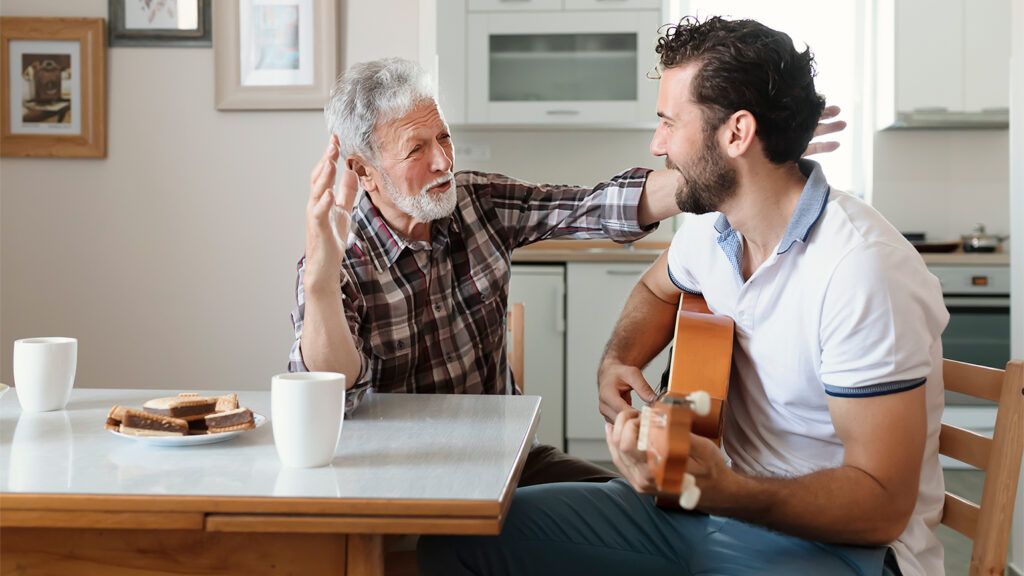Many caregivers can relate to the following experience: Their loved one with dementia barely speaks and has no clue where they live or what year it is. But then an old song comes on the radio and their loved one is suddenly singing along—word for word. “Music is powerful,” says Lakelyn Eichenberger, Ph.D., gerontologist and caregiver advocate at Home Instead. “People can hold on to musical memories for a long time because they are held in a different part of the brain.” Listening to music has also been shown to reduce anxiety and agitation in people living with dementia. Here’s how to make a meaningful musical encounter.
Avoid overstimulation. Dr. Eichenber ger notes that you should limit the number of competing noises in the room. “If you are playing a concert, you don’t want to have the TV on at the same time or have a loud conversation,” she says.
Play their favorites. “If your loved one is no longer verbal, it can be difficult to figure out what music they love,” says Dr. Eichenberger. Try popular music from their teens or twenties, which seems to resonate, as does patriotic music, particularly for veterans. “Spiritual music can be very moving,” Dr. Eichenberger says. “Often they can still sing traditional hymns from their childhood.”
Set the mood. Coordinate the music with the activity. “Spa-like music can help set the right mood for bathing,” says Dr. Eichenberger. Livelier music might be better while the person is getting dressed. “If there is an activity they particularly dislike, playing a favorite song may distract them.”
Make it an intergenerational experience. “Bring in young kids for a sing-along,” Dr. Eichenberger suggests. “Especially around the holidays, music can be a neat way to bond and to reminisce. If the older adult has the memory of a song, there could be that transfer of knowledge.” Another option: Get older kids involved in researching their grandparents’ wedding song or songs from their youth.
Experiment. Creating a positive musical experience involves trial and error. “There is no cookie-cutter answer,” Dr. Eichenberger says. Some elderly enjoy watching YouTube videos with music; others like to clap, tap their feet and sing along. “Caregivers need to be resilient,” she says. “Don’t give up if one day they don’t want to listen to a certain song. Sometimes I don’t feel like listening to the radio on my drive home. But that doesn’t mean the next time won’t work out better.”
Visit homeinstead.com for more information or to hire a professional caregiver.
Read more: Their Love Endured Despite His Early-Onset Alzheimer’s
For more inspiring stories, subscribe to Guideposts magazine.






